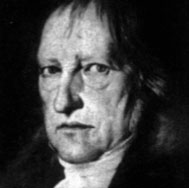How (if at all) should the modern state express and secure the liberty and equality of citizens? What is the political significance of private property? What does it mean to understand humans as rational beings, and how does this understanding of human nature influence political theory and practice? In History of Political Thought III, “Liberty, Democracy, and Revolution,” we address these and other fundamental political questions, focusing our attention on canonical works from the late 18th and the 19th centuries, by Immanuel Kant (1724-1804), G.W.F. Hegel (1770-1831), Karl Marx (1818-1883), Alexis de Tocqueville (1805-1859), J.S. Mill (1806-1873), and Friedrich Nietzsche (1844-1900). This course is the third in a three-semester sequence on the history of political thought. Students are encouraged but not required to take all three courses.


